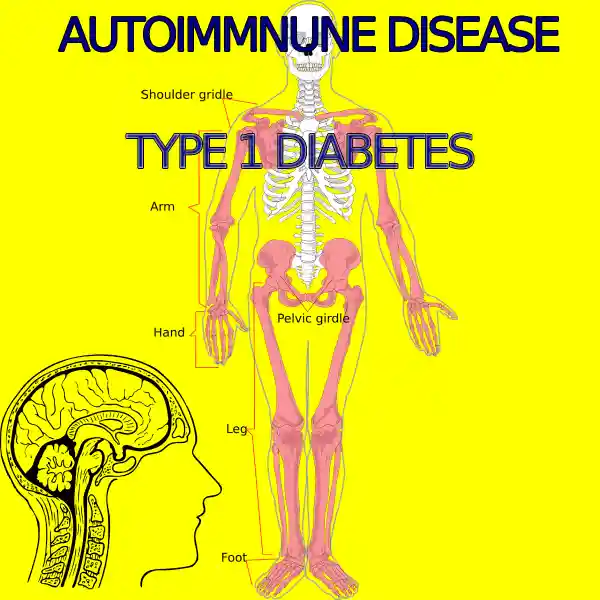AUTOIMMUNE DISORDER
Autoimmune Disorder Breakthrough: PEP Shows Promise to treat Multiple sclerosis, rheumatoid arthritis and more
Another significant breakthrough has emerged in the fight against autoimmune diseases such as rheumatoid arthritis and multiple sclerosis. Researchers have identified a chemical compound, phosphoenolpyruvate (PEP), that shows promise as a new treatment option for autoimmune disorder.
Understanding Autoimmune Disorder:

Autoimmune disorder is a group of over 80 disorders in which the immune system erroneously targets the body’s own cells and tissues, rather than focusing on external pathogens like bacteria or viruses. Common autoimmune disorders include rheumatoid arthritis, multiple sclerosis, lupus, type 1 diabetes, and psoriasis.
These autoimmune disorders manifest differently depending on which part of the body is attacked, leading to symptoms such as joint pain, fatigue, skin rashes, and digestive problems. The precise causes of autoimmune disorders remain unknown, but they are thought to arise from a complex interplay of genetic predisposition and environmental triggers.
Although no cures exist for these autoimmune disorders, treatments have been developed to alleviate symptoms and slow their progression. These include medications, lifestyle adjustments, and, in some cases, surgery.
Type 1 Diabetes

Type 1 diabetes is a chronic autoimmune disorder where the immune system mistakenly destroys insulin-producing cells in the pancreas. This destruction leads to an inability to regulate blood sugar levels effectively, as insulin plays a vital role in glucose metabolism.
The condition typically presents in childhood or adolescence but can also appear in adulthood. Current research suggests that a combination of genetic and environmental factors contributes to the onset of type 1 diabetes.

Multiple Sclerosis
Multiple sclerosis (MS) is a progressive autoimmune disorder affecting the central nervous system (CNS), particularly the brain and spinal cord. In MS, the immune system attacks the protective myelin sheath that insulates nerve fibers, leading to inflammation and damage. This can cause an array of symptoms including fatigue, numbness, muscle weakness, vision problems, and issues with balance and coordination. Though there is no cure for MS, therapies exist to help manage symptoms and delay the progression of the disease.
Rheumatoid Arthritis
Rheumatoid arthritis (RA) primarily targets the joints, resulting in chronic pain, stiffness, and inflammation. This autoimmune condition causes the immune system to attack the joint lining, leading to the destruction of joint tissue, deformity, and loss of function.
RA can also impact other organs such as the eyes, lungs, and blood vessels. Though incurable, early detection and treatment can help control RA symptoms and mitigate further damage through medications, physical therapy, and surgery.

The Discovery of Phosphoenolpyruvate :
The recent discovery of phosphoenolpyruvate (PEP) offers new hope in the treatment of autoimmune diseases. PEP is a metabolite produced during glycolysis, the metabolic process essential for the growth and functioning of various cells, including T helper 17 (Th17) cells. Th17 cells are a subset of immune cells involved in the pathogenesis of several autoimmune diseases.
Researchers have found that PEP inhibits the maturation of Th17 cells by blocking the activity of a protein known as JunB, which is crucial for Th17 cell development. In doing so, PEP effectively reduces the inflammatory responses linked to autoimmune conditions.
Animal studies using mice with neuroinflammation, a condition similar to multiple sclerosis, showed significant recovery following PEP treatment, further underscoring its potential.
This discovery is particularly exciting because it provides an alternative to current treatments that inhibit glycolysis, which can have adverse effects on various cell types. By targeting Th17 cells specifically, PEP offers a more focused approach with fewer potential side effects.
Research Findings :
The study titled “Phosphoenolpyruvate regulates the Th17 transcriptional program and inhibits autoimmunity” was published in Cell Reports on February 28th, 2023. The research team, led by Tsung-Yen Huang and others, demonstrated the efficacy of PEP in inhibiting the Th17 immune response and its potential to serve as a treatment for autoimmune diseases.

The promising results from this research may pave the way for the development of new therapeutic strategies that could revolutionize the management of conditions like rheumatoid arthritis and multiple sclerosis, offering hope to millions of patients worldwide.
Journal Reference:
- Cell Reports, February 28th, 2023
- DOI: 10.1016/j.celrep.2023.112205





